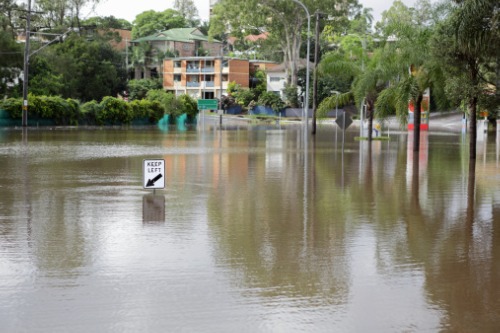

It has been a harrowing week for the residents of Fort McMurray, a community in Wood Buffalo, Alberta. Some have gone so far as to describe it as “the perfect storm” with the combination of COVID-19, extremely low oil prices, and then a once-in-a-century flood that forced nearly 13,000 people from their homes.
The flooding was triggered early last week by a 25-kilometre ice jam on the Athabasca River. Ice jams form when ice blocks lodge at points in a river, like a bend or an island, and they restrict the flow of water. When water cannot flow downstream, it backs up and can lead to very high water levels like those seen in the Wood Buffalo region last week.
The regional municipality of Wood Buffalo ordered mandatory evacuation and the complete closure of Fort McMurray’s downtown core on Monday, April 27. This was the second state of local emergency to be declared, in addition to the state-wide COVID-19 declaration in March.
Deputy prime minister Chrystia Freeland released a statement on Monday, April 27, in which she said: “The fact that flooding season and, in due course, forest fire season, is coinciding with coronavirus in Canada is posing some special challenges.” Her sentiments are shared by local residents, one of whom - Michelle Toner – told The Canadian Press: “Dealing with low oil prices, COVID-19 and now this massive flood that hasn’t happened in 100 years - it’s a lot, it’s a lot for people to take.”
With thousands of residents displaced and many structures flooded, the economic damages – both insured and uninsured – from these devastating spring floods are likely to be severe. Insurance representatives have been deemed an essential service by the Government of Alberta and stand by to answer questions, respond to coverage questions and assist with insurance claims, explained Celyeste Power, vice president, Western, Insurance Bureau of Canada (IBC).
She told Insurance Business: “First and foremost, during a severe weather event, everyone’s priority must be their personal safety and the safety of loved ones and neighbours. In any emergency situation, it’s important to follow the guidance provided by local and provincial emergency management officials.
“Many Canadian insurers now offer residential overland flood insurance which, along with sewer backup coverage, helps reduce the financial risk of flooding events. However, these products are optional so they must be added-on to home insurance policies and are limited in high-risk flood areas, like floodplains. Anyone with questions should reach out to their insurance representative or can call IBC’s Consumer Information Centre at 1-844-2ASK-IBC.”
For insurance brokers helping flood victims, effective communication is one of the top priorities at this time, according to Janis Losie, chief operating officer at the Insurance Brokers’ Association of Alberta (IBAA). If and when claims start coming in, brokers need to let people know exactly what’s available to insureds under their policy, as well as what they need to do to prevent their property from getting even more damaged.
“When you’re evacuated, there’s really nothing you can do. You have to wait for the authorities to let you get back into your home,” said Losie. “But brokers will be reaching out to clients, saying: ‘Hey, this is what’s covered on your policy for additional living expenses in the event the civil authorities ask you to leave. This is how you can access some of that funding. This is what you can do by keeping all of your receipts. Make sure you’re somewhere safe and that you continue to abide by COVID-19 rules and regulations, which means potentially staying in a hotel.
“The broker has a role to have clients’ backs as far as making sure these claims are getting reported, making sure they’re letting people know how to access funding, and making sure people know how to access their insurance company – although most brokers will report claims on the policyholder’s behalf. On top of that, it’s also important for brokers to get other people in the area (those who have not been evacuated) prepared in the event that flood waters rise, damages start to occur elsewhere, and further evacuations are ordered.”
It’s all about communication, communication, communication. While the global coronavirus pandemic has certainly thrown up some challenges for insurance brokers in terms of how they connect with clients and provide best-in-class customer service, there are still ways to get in touch with people and share valuable advice. The IBAA shared in a town hall last week that the best way for brokers to help clients right now is to “ramp up communications, reach out to the different populations, ask what they need, and provide them with that advice.”
These floods could be the first of many natural challenges for the heart of Canada’s oil sands industry over the next few months. With wildfire season, hail season and potential tornadoes lurking on the horizon – and no clear end in site for the coronavirus pandemic – it’s vital for insurance brokers to keep communication open and be that beacon of support for local communities.
